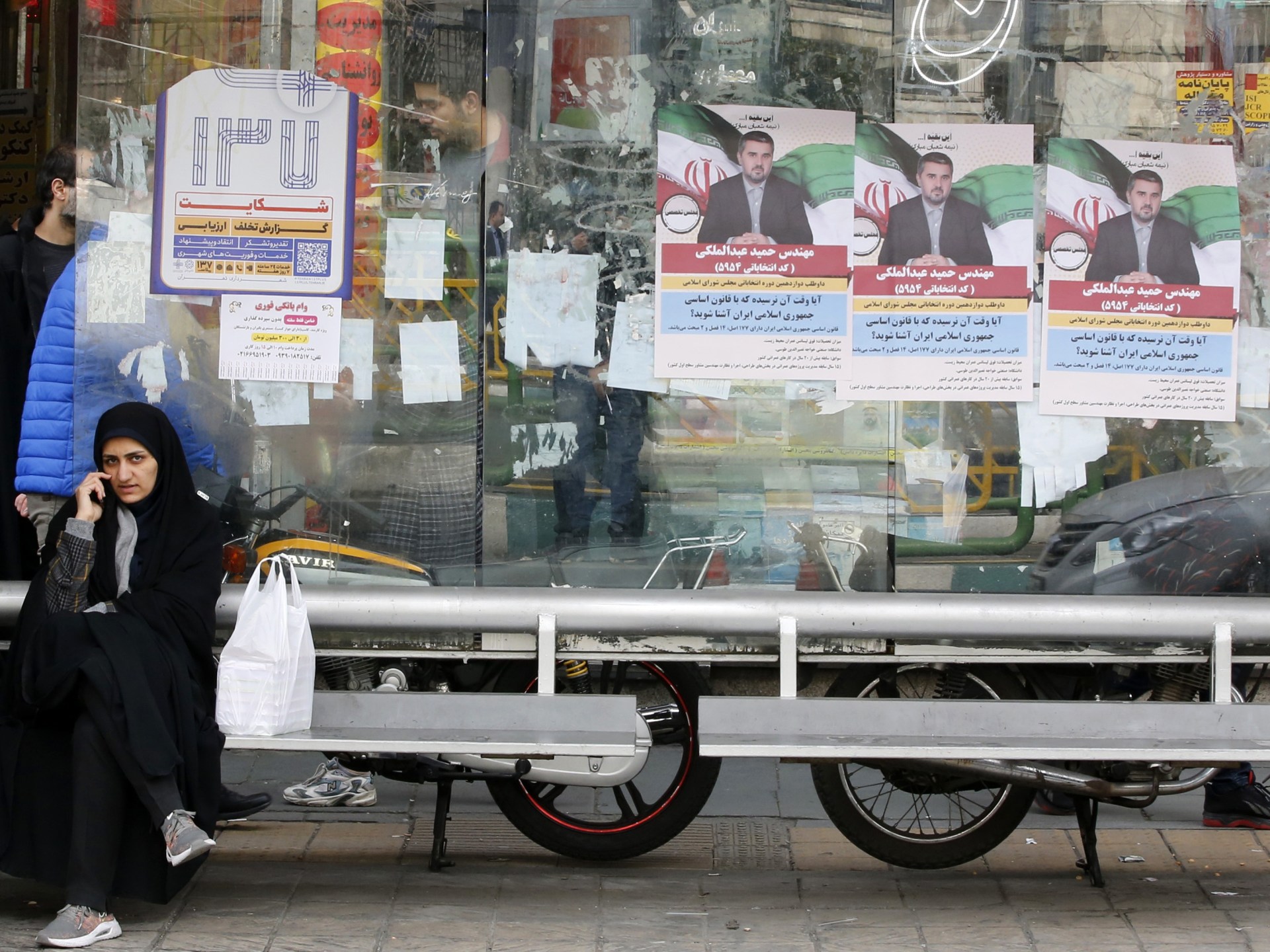Iranians vote in the elections for Parliament and the Leadership Council of Experts in early March (European)
Tehran -
A wide controversy dominates Iranian political circles regarding the powers and decisions of the Guardian Council, which is charged with determining the eligibility of applicants to run for elections in Iran.
The reformists accuse the council of making decisions that serve the fundamentalist movement and exclude reformist candidates, leading to fundamentalist domination of the entire system.
The development of positions reached an official announcement by the reformist movement not to submit lists and to refrain from supporting any list in the elections for Parliament and the Assembly of Experts expected on the first of next March.
Shariati: The Iranian people are not the ones who choose, but rather the Guardian Council (Al Jazeera)
problem
It is clearly noted that the Iranian street is cold regarding the elections, while the fundamentalist vote base has not wavered, because it sees the decisions to protect the constitution as correct and believes that participating in the elections is a national duty.
Reformist politician Saeed Shariati says, “In Iran, we have a problem with the elections, which is appropriate oversight or discretionary supervision, since, 31 years ago, the Guardian Council adopted an interpretation of Article 99 of the Constitution, which gives it many powers, including approving and rejecting the eligibility of applicants to run for any of the elections.” .
He added, in his speech to Al Jazeera Net, that with the interpretation made by the Guardian Council of this article and the powers it grants itself, the elections in Iran have become in two stages.
Shariati added that the people, who are the ones who have the choice, are not able to choose their candidates, but are forced to choose from among the options that were previously chosen and determined for them by the Guardian Council, “and this contradicts the Iranian constitution,” in his opinion.
He believes that this discretionary supervision conflicts with people’s right to freedom of choice, and he considered that changing the election law, unifying implementers and observers, and the criteria for monitoring eligibility in this round of elections, created a basis for excluding any thought different from conservative thought.
He concluded by saying that one of the most important functions of elections is to connect political parties and organizations to their vote base.
Iranian elections infographic (Al Jazeera)
Focal point
It is noteworthy that the new election law requires early electronic registration for candidates applying for candidacy, and its implementation began two weeks ago, which aroused the ire of the reformists, who considered it an aid to their exclusion.
On the other hand, the editor-in-chief of the fundamentalist Kayhan newspaper, Hossein Shariatmadari, believed that the Guardian Council is the people’s assistant in terms of preliminary knowledge of the candidates, and gives an opinion about their qualifications with information obtained from several official bodies and local research, while this data is not available to many. the people.
In a debate with Mehdi Hashemi, head of a reformist party and son of former Iranian President Hashemi Rafsanjani, Shariatmadari wondered where in the world they allow people to announce their candidacy without meeting the legal requirements of that country.
He cited almost all European countries where there is a focal point such as the Guardian Council under the name of the Constitutional Court, whose duties include examining the qualifications of candidates. In America, the Supreme Court undertakes this task and its powers are dozens of times greater than the powers of the Guardian Council in Iran, according to him.
"Reformers' mistake"
For his part, political analyst Hadi Mohammadi believed that people should take advantage of the smallest opportunities in the political arena to achieve their demands, and there is no doubt that elections are one of these ways to reach the goal, despite all the criticism directed at the Guardian Council.
He added, speaking to Al Jazeera Net, that in these elections, the Guardian Council did not reject the eligibility of a large number of candidates, because the reformists did not apply to run in order to avoid having their eligibility rejected, “and this is a mistake on their part.”
He rejected the criticism directed at preserving the constitution as a pretext for boycotting the elections, and said that there are more than 100 candidates who do not belong to the fundamentalist movement out of 3,545 candidates for parliament, and voters can choose from among them for Tehran’s 30 seats.
Hadi Mohammadi added that the higher the participation rate, the greater the moderation and the weakness of extremism and extremism in the political system in Iran.
Source: Al Jazeera

